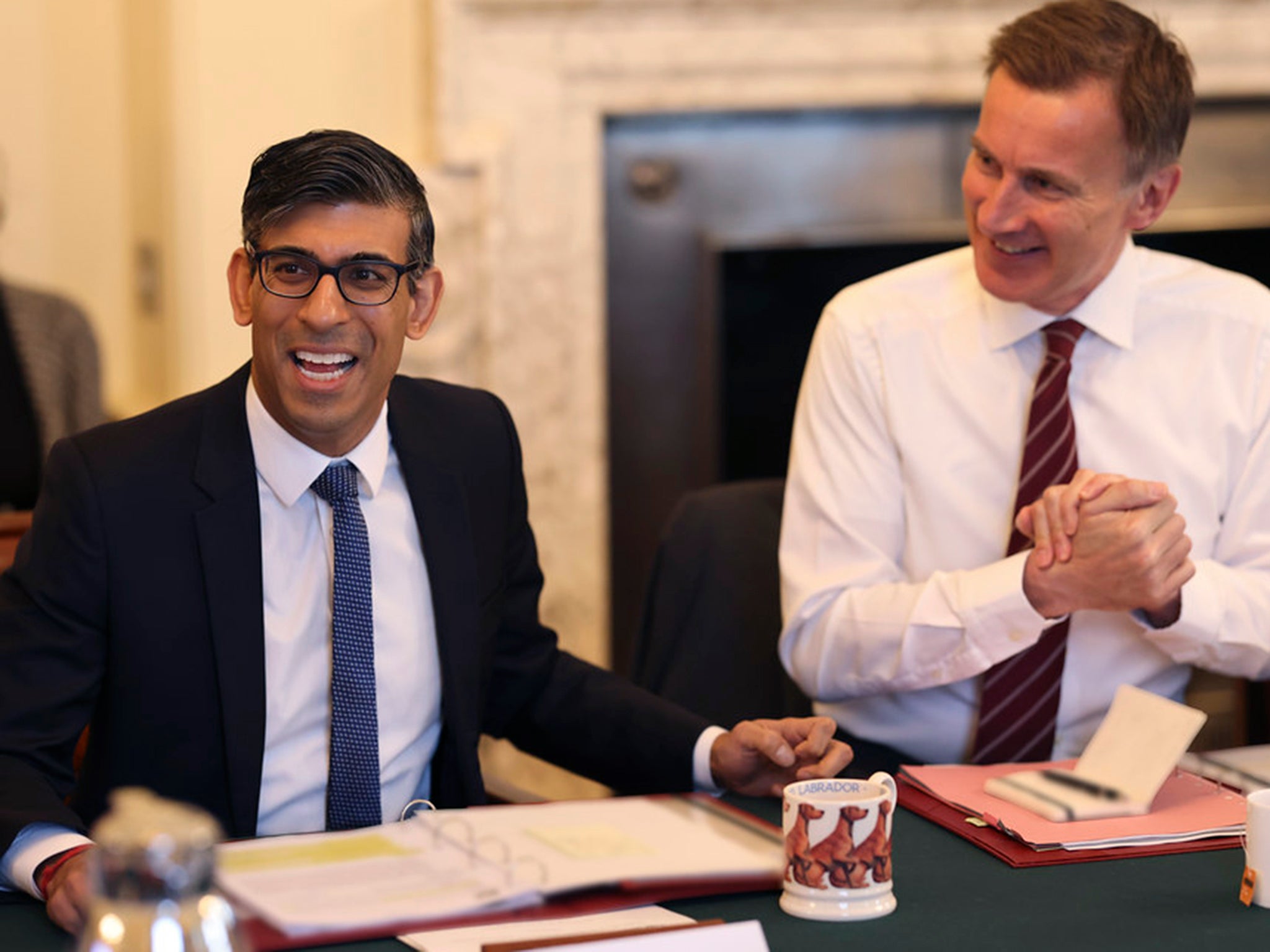The Boris clown show is over – Sunak’s election tightrope act teeters on
Boris Johnson is at last in the rear-view mirror, writes John Rentoul, but even if the inflation target is hit and mortgage misery abates, it may be that Rishi has run out of road and voters will feel it is time for a change


MPs do love talking about themselves. They were given an excuse yesterday because they know that many voters are angry with Boris Johnson, and that their constituents take the issue of lockdown breaches in government seriously.
That does not mean, though, that all those voters wanted to hear five hours of repetitive, sanctimonious speeches about the importance of defending the privileges committee for the sake of democracy, and about the awfulness of the former prime minister, in which MP after MP used the word “liar”, normally forbidden in parliament, with relish.
At a time when interest rates are pushing ever higher, it all seemed rather beside the point. Fortunately, Jeremy Hunt, the chancellor, was in the Commons this morning to reassure us that he and Rishi Sunak have a plan that will deal with the cost of living crisis, which is what most people are most worried about.
The plan – it turned out – is to convene a meeting with mortgage lenders and ask them to be flexible with borrowers who find themselves in difficulties. Some MPs, including some Conservative MPs, didn’t think this was enough. Sir Jake Berry asked Hunt to bring back mortgage interest relief, saying: “If we don’t help families now then all the other money we have spent will be wasted if they lose their homes.”
This is an unusual argument: that the Tories have spent so much on furlough and energy price subsidy that it would be a shame not to spend many billions more on mortgage support.
Hunt said he didn’t think it would be a good idea: “These kind of schemes right now would be inflationary and we won’t do anything that will prolong inflation.”
Yet when he was asked by Stewart Hosie, the SNP Treasury spokesperson, to “guarantee” that inflation would be halved by the end of this year, as Sunak has promised, he took refuge in forecasts: “The IMF, the OBR and the Bank of England all predict that we will hit our target to halve inflation,” he said. “I give him this guarantee: we will stick to the plan to do so.”
Hunt is well aware that the walls are closing in on this government. The five promises that Sunak made at the start of the year, confident that at least four of them would be delivered, are looking more and more like a trap that the prime minister has made for himself. The first and most important, on inflation, could be missed if, say, a bad coffee harvest pushes up prices a bit further than forecasters expect. Tomorrow morning’s consumer prices index is awaited nervously.
Neither feeble economic growth nor getting the national debt under control – the next two promises – is likely to save the government while NHS waiting lists have gone in the wrong direction. Doctors are still on strike; nurses are still unhappy; time is running out to turn things around in time for an election. And still, the small boats keep coming.
Time is running out for Sunak, and yet there is a long time still to go until an election in October next year. The government seems trapped in a long limbo of insisting that there is no alternative to sticking to the course it has set, while hoping that something will turn up to distract people from feeling worse off.
Yet the only things that are likely to turn up are by-election defeats and intermittent reports from the Covid inquiry, reminding people of what went wrong rather than what went right. The period, which lasted almost a year, in which the British were lightheaded with the success of the vaccines programme and grudgingly grateful to the then prime minister for delivering it, now seems like the ancient history of another country.
It is possible that we are now in a pre-election phase like the run-up to 1997. Then, the economy was growing, but the public services were dilapidated. Sir Gary Streeter, the Conservative MP who was an aide to John Major after that election, told Matt Chorley of Times Radio in an interview this week that the Conservatives had just been in government for too long – 18 years. He hedged when asked if 14 years, as it will be by the likely date of the next election, is also “too long”.
Even if the inflation target is hit and mortgage misery abates, it may be that the voters will feel that it is time for a change, especially as Keir Starmer methodically removes the remaining few policies that might put voters off his party. Sunak and Hunt may be waiting and hoping in vain.






Join our commenting forum
Join thought-provoking conversations, follow other Independent readers and see their replies
Comments